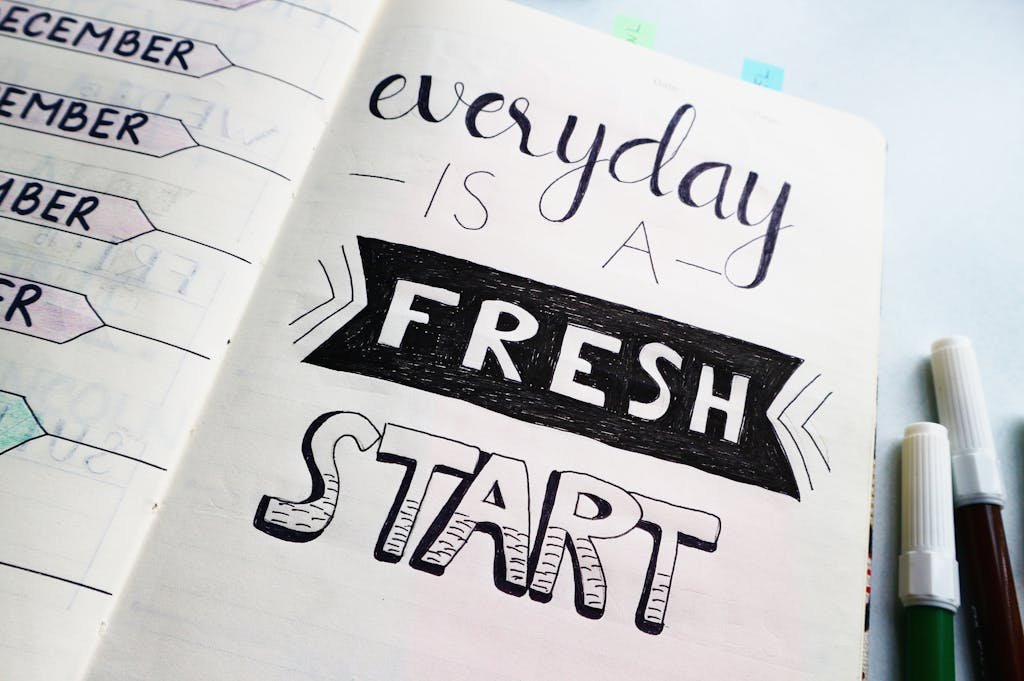I’m Alicia, and Mondays used to be the day I dreaded the most—the day that stole away the lingering warmth of the weekend. But then came a Monday that changed everything. I stepped into an office that didn’t just feel like a workplace; it felt like a second home. This wasn’t just a job—it was a chance to make a meaningful difference in the world.
That first Monday in my new role was different. I woke up not with reluctance, but with excitement and anticipation. It set the tone for my entire week. I realized then that when you truly love what you do, even Mondays can carry the same excitement as Fridays. This is my story of transformation—a journey from feeling trapped in a career that didn’t fulfill me, to finding one that aligned perfectly with my passions and values.
A Story of Transformation
How Finding the Right Job Changed Everything
My story isn’t unique, but it’s a powerful reminder of what happens when you find a job that resonates with who you are. For years, I was stuck in a corporate environment, working in roles that paid the bills but didn’t ignite my passion. Every Sunday evening, I felt the familiar dread of an upcoming week filled with tasks that felt monotonous and disconnected from my true self.
But everything changed when I decided to follow my heart. I took a leap of faith and joined a nonprofit organization focused on conserving natural habitats. This new role wasn’t just a job; it was a calling. I finally felt that my work had a purpose and was aligned with my values. Every day, I woke up eager to contribute to a cause that mattered to me, and this enthusiasm wasn’t just personal—it became contagious to those around me.
My journey illustrates how finding the right job can profoundly impact every aspect of your life. It’s not just about professional satisfaction; it’s about enhancing your overall well-being. Loving your job changes everything—from how you start your day to how you view the week ahead. Let’s explore why loving what you do is essential and how you can find a career that brings you joy.
The Many Faces of “I Love My Job!”
10 Reasons Your Work Can Be a Source of Joy and Fulfillment
- Passion Alignment: When your job aligns with your passions, it doesn’t feel like work. You’ll wake up excited to tackle the day’s challenges because you’re doing what you love.
- Positive Work Environment: A supportive and positive workplace culture can make all the difference. Being surrounded by like-minded colleagues who share your values creates a sense of belonging.
- Opportunities for Growth: A job that offers opportunities for personal and professional growth keeps you engaged and motivated. Continuous learning and development are key to long-term satisfaction.
- Work-Life Balance: Jobs that prioritize work-life balance allow you to enjoy your personal life without feeling overwhelmed. Flexibility and reasonable hours contribute to overall happiness.
- Impactful Work: Knowing that your work makes a positive impact on others or the world can be incredibly fulfilling. Jobs in healthcare, education, and nonprofit sectors often provide this sense of purpose.
- Creative Freedom: Roles that encourage creative thinking and innovation allow you to express yourself fully. Whether it’s designing, writing, or problem-solving, creative freedom fosters job satisfaction.
- Recognition and Appreciation: Feeling valued and appreciated for your contributions boosts morale. Regular recognition and positive feedback create a motivating work environment.
- Financial Stability: While passion is important, financial stability is also crucial. A job that provides a fair salary and benefits ensures peace of mind and reduces stress.
- Autonomy and Ownership: Having the autonomy to make decisions and take ownership of your work fosters a sense of responsibility and pride. It allows you to take charge of your projects and see them through.
- Meaningful Relationships: Building strong relationships with colleagues and clients can make your job more enjoyable. Positive interactions and teamwork enhance job satisfaction.
Finding the Perfect Balance
Priorities and Trade-offs in Your Job Search
Finding a job that brings you joy often requires balancing various priorities and making trade-offs. It’s essential to identify what matters most to you and make informed decisions.
Identify Your Priorities
Start by listing your top priorities in a job. Is it a flexible schedule, a supportive work environment, or growth opportunities? Understanding your priorities will help you focus your job search on roles that align with your values.
Weigh Different Factors
Sometimes, you may need to make trade-offs. For example, a higher-paying job may come with longer hours, while a lower-paying job might offer a better work-life balance. Consider what you’re willing to compromise on and what you’re not.
Seek Advice and Mentorship
Talking to mentors or career coaches can provide valuable insights. They can help you weigh your options, identify potential red flags, and make informed decisions about your career path.
Red Flags to Watch Out For
Don’t Get Blinded by the Shine
While a job may seem perfect on paper, it’s essential to be aware of potential red flags that could lead to dissatisfaction.
Toxic Work Culture
A toxic work culture can quickly drain your enthusiasm. Look for signs of high turnover rates, negative reviews from employees, and lack of transparency in company policies. Trust your instincts – if something feels off during the interview process, it might be a red flag.
Unrealistic Expectations
Beware of job descriptions that set unrealistic expectations. If a role requires you to wear multiple hats without adequate compensation or support, it may lead to burnout. Clarify your responsibilities and ensure they align with your capabilities.
Lack of Growth Opportunities
A job that doesn’t offer growth opportunities can become stagnant. Ask about the company’s career development programs and advancement opportunities during the interview. A lack of clear paths for progression could hinder your long-term satisfaction.

Charting Your Course to Career Bliss
Self-Discovery
Self-discovery is the first step to finding a job you love. Reflect on your strengths, values, and passions to understand what truly motivates you.
Assess Your Strengths
Take time to assess your skills and strengths. What tasks do you excel at? What activities make you lose track of time? Identifying your strengths will guide you toward roles that align with your natural abilities.
Define Your Values
Your values play a crucial role in job satisfaction. Consider what principles are non-negotiable for you. Whether it’s work-life balance, social impact, or creative freedom, knowing your values will help you find a job that resonates with you.
Explore Your Passions
Think about what activities bring you joy and fulfillment. Your passions can provide valuable clues about potential career paths. Whether it’s helping others, solving problems, or creating art, pursuing your passions can lead to a fulfilling career.
Beyond the Job Hunt
Finding a job you love goes beyond the initial job search. It’s about mapping your career path and leveraging available resources to achieve your goals.
Utilize Career Path Maps
Career path maps can provide a clear roadmap for your professional growth. Research different career trajectories within your field and identify the skills and experiences needed to advance. This proactive approach will help you stay focused and motivated.
Leverage Online Resources
The internet is filled with valuable resources to support your career development. From online courses to professional networking platforms, make use of these tools to enhance your skills, expand your network, and stay updated on industry trends.
Seek Mentorship and Guidance
Mentorship programs can provide invaluable insights and support. Find mentors who have achieved success in your desired field and seek their guidance. Their experiences and advice can help you navigate challenges and make informed decisions.
Interview Tips & Salary Negotiation Guides
Mastering the interview process and negotiating your salary are crucial steps in landing your dream job.
Prepare for Interviews
Research the company, practice common interview questions, and highlight your strengths and experiences. Confidence and preparation will set you apart from other candidates.
Showcase Your Value
During salary negotiations, emphasize the value you bring to the organization. Highlight your skills, accomplishments, and industry knowledge. Be prepared to negotiate and advocate for a fair compensation package.
Practice Negotiation Skills
Negotiation is a skill that can be developed. Practice with a friend or mentor to build confidence. Remember, it’s not just about the salary – consider other benefits such as work-life balance, professional development opportunities, and flexible work arrangements.
Networking Strategies & Mentorship Programs
Building a strong professional network and seeking mentorship can open doors to new opportunities and career growth.
Attend Industry Events
Attend conferences, webinars, and industry events to meet professionals in your field. Networking events provide valuable opportunities to make connections, exchange ideas, and stay updated on industry trends.
Join Professional Associations
Joining professional associations related to your field can expand your network and provide access to valuable resources. Participate actively in association activities and take advantage of networking opportunities.
Seek Mentorship Programs
Many organizations offer mentorship programs to support career development. Find mentors who have achieved success in your desired field and seek their guidance. Their experiences and advice can help you navigate challenges and make informed decisions.
Thinking Outside the Box
Non-traditional careers can offer unique opportunities for fulfillment and success. Consider exploring alternative career paths that align with your interests and passions.
Freelancing
Freelancing provides flexibility and the opportunity to work on diverse projects. Whether you’re a writer, designer, or consultant, freelancing allows you to choose your clients and set your schedule.
Entrepreneurship
Starting your own business can be a rewarding and fulfilling career path. It allows you to pursue your passions, take control of your destiny, and create something meaningful. Entrepreneurship requires dedication, resilience, and a willingness to take risks.
Gig Economy Success Stories
The gig economy offers various opportunities for short-term, flexible work. From ride-sharing to freelance gigs, the gig economy allows you to explore different industries and gain valuable experience. Many individuals have found success and fulfillment in gig-based careers.
Tailored Advice for Your Stage in the Journey
Career Changers
Transitioning to a new career can be challenging, but with the right strategies, you can make a smooth and successful transition.
Identify Transferable Skills
Assess your current skills and identify those that are transferable to your desired career. Highlight these skills in your resume and during interviews to demonstrate your value.
Invest in Upskilling
Consider enrolling in courses or certifications related to your new career path. Upskilling will enhance your knowledge and make you more competitive in the job market.
Network with Industry Professionals
Build connections with professionals in your desired field. Attend industry events, join relevant online communities, and seek informational interviews to gain insights and expand your network.
Internship Opportunities
Internships provide valuable hands-on experience and can lead to full-time job offers. Look for internships in your desired field to gain practical skills and industry exposure.
Entry-Level Job Search Tips
Tailor your resume and cover letter to highlight relevant coursework, internships, and extracurricular activities. Research entry-level job opportunities and apply to positions that align with your interests and skills.
Salary Expectations
Research salary ranges for entry-level positions in your field to set realistic expectations. Be prepared to negotiate a fair compensation package based on your qualifications and the industry standards.

Finding Inspiration and Building Momentum
Words of Wisdom
Inspiring Quotes on Work and Career Fulfillment
- “Inspiration does exist, but it must find you working.” – Pablo Picasso
- “Choose a job you love, and you will never have to work a day in your life.” – Confucius
- “The only way to do great work is to love what you do.” – Steve Jobs
- “Loving your job means you never have to settle for less than what you’re passionate about.” – Alicia
What You Can Do Today
Finding a job you love is a journey worth taking. Here are some actionable steps you can take today to move closer to your dream job.
Reflect on Your Passions and Strengths
Take time to reflect on what you’re passionate about and what skills you excel at. Understanding your passions and strengths will guide you toward a fulfilling career.
Research and Explore Career Paths
Research different career paths and explore opportunities that align with your interests. Take advantage of online resources, career assessments, and industry insights to make informed decisions.
Network and Seek Guidance
Reach out to professionals in your desired field, attend industry events, and seek mentorship. Building a strong network will provide valuable insights and open doors to new opportunities.
Conclusion
Loving your job is not just a dream; it’s a reality that can transform your life. By aligning your passions, values, and strengths with your career, you can find fulfillment and joy in your work. Remember, it’s a journey that requires self-discovery, intentional choices, and continuous growth.





